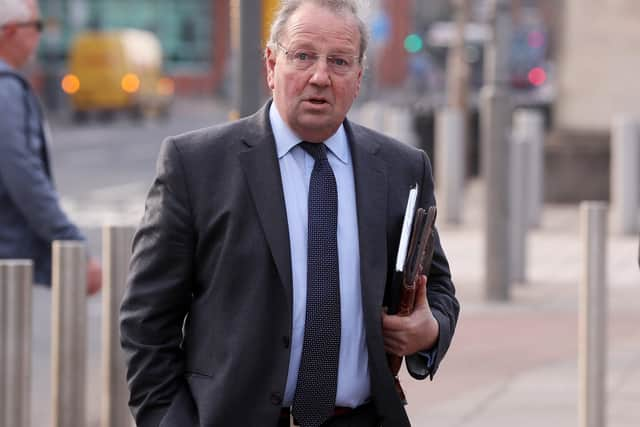‘Cautious welcome’ to the government’s legacy bill from veterans’ commissioner Danny Kinahan
and live on Freeview channel 276
Danny Kinahan claimed that no one had come up with any alternatives to the legislation the secretary of state put forward to Parliament yesterday.
Mr Kinahan told BBC Radio Foyle yesterday: “You’ve now got a framework ... and people should be getting in there and finding out how they can change it and make it stronger so the whole of society and not just veterans benefit from it.”
Advertisement
Hide AdAdvertisement
Hide AdTUV Mid Ulster representative Glen Moore said Brandon Lewis’s assertion that the chances of bringing terrorists to justice was “vanishingly small” has been part of the criminal justice system for years.


“Not only were terrorists released but many who never served a day in jail were given OTR letters which effectively rendered them from prosecution,” Mr Moore said.
Veteran groups based in Great Britain have already signalled their support for the bill and end what they believe was a one-way prosecution system only of ex-soldiers rather than former paramilitaries.
The Northern Ireland Veterans Movement has said the bill “is not what everybody wants but it as close as we are going to get” in terms of dealing with the legacy of the Troubles.
Advertisement
Hide AdAdvertisement
Hide AdMeanwhile, former Northern Ireland secretary Julian Smith raised concerns in Parliament yesterday over the bill which he warned created “an unfair cut-off point” for victims seeking justice.
Mr Smith said there was a danger that the bill would face legal challenges based on Article 2 of the European Convention on Human Rights.
“If these fears are right the bill risks leading to ongoing legal challenge and a highly unstable environment for victims. Worse, many argue, than the patchwork system of Troubles justice we have today.”